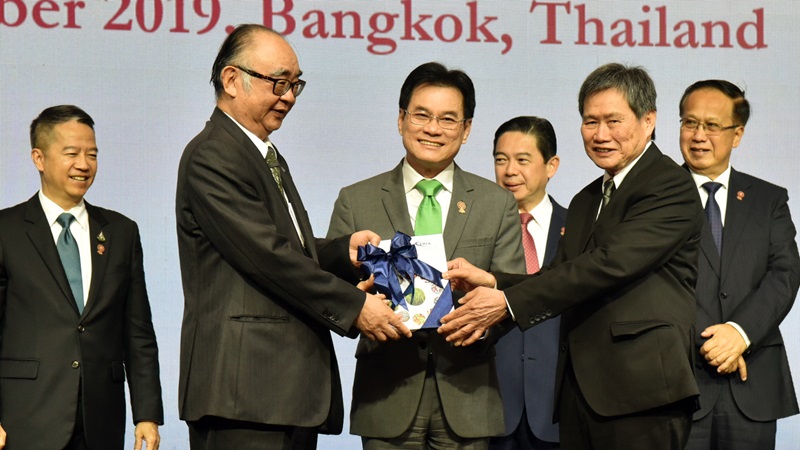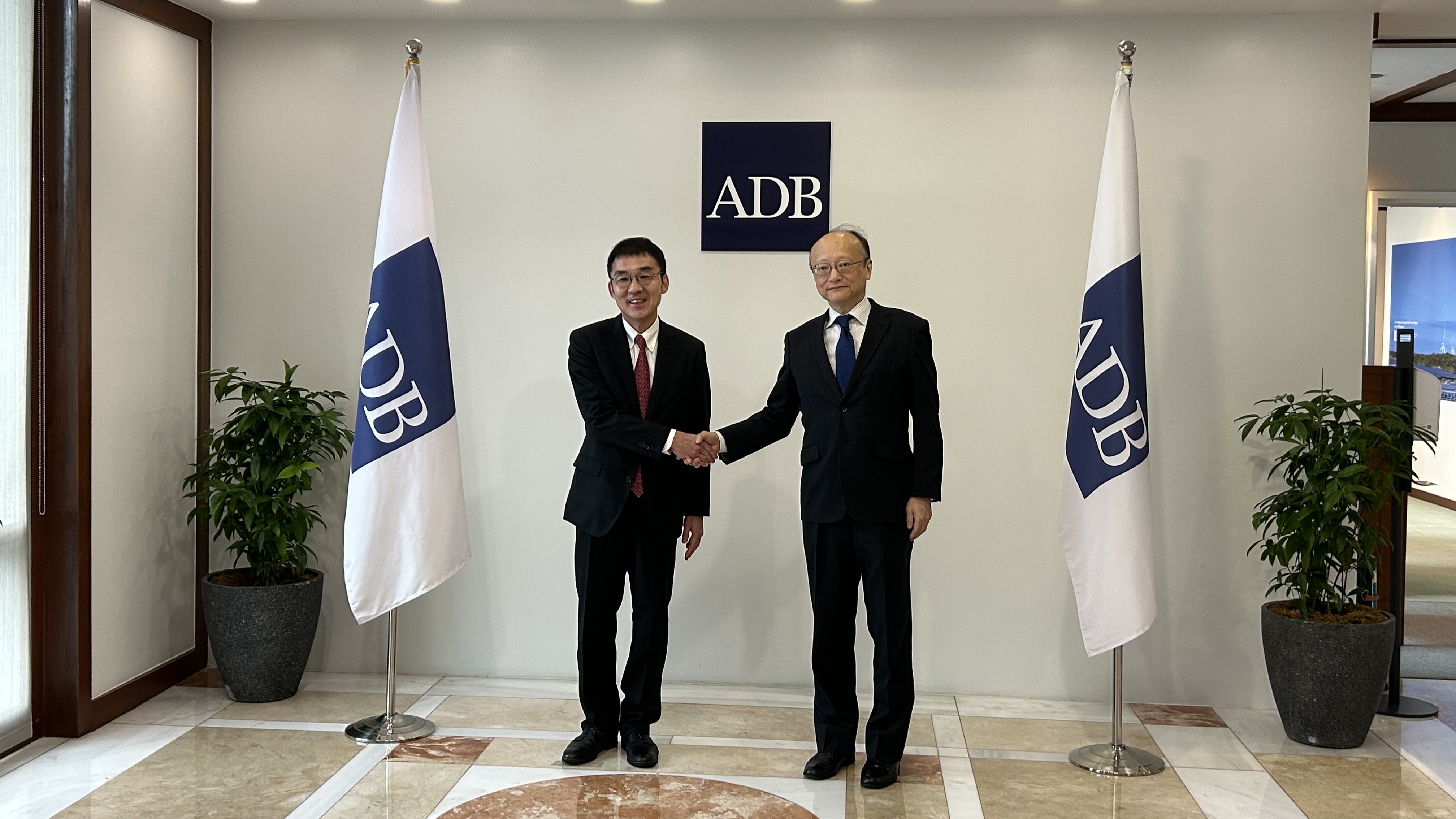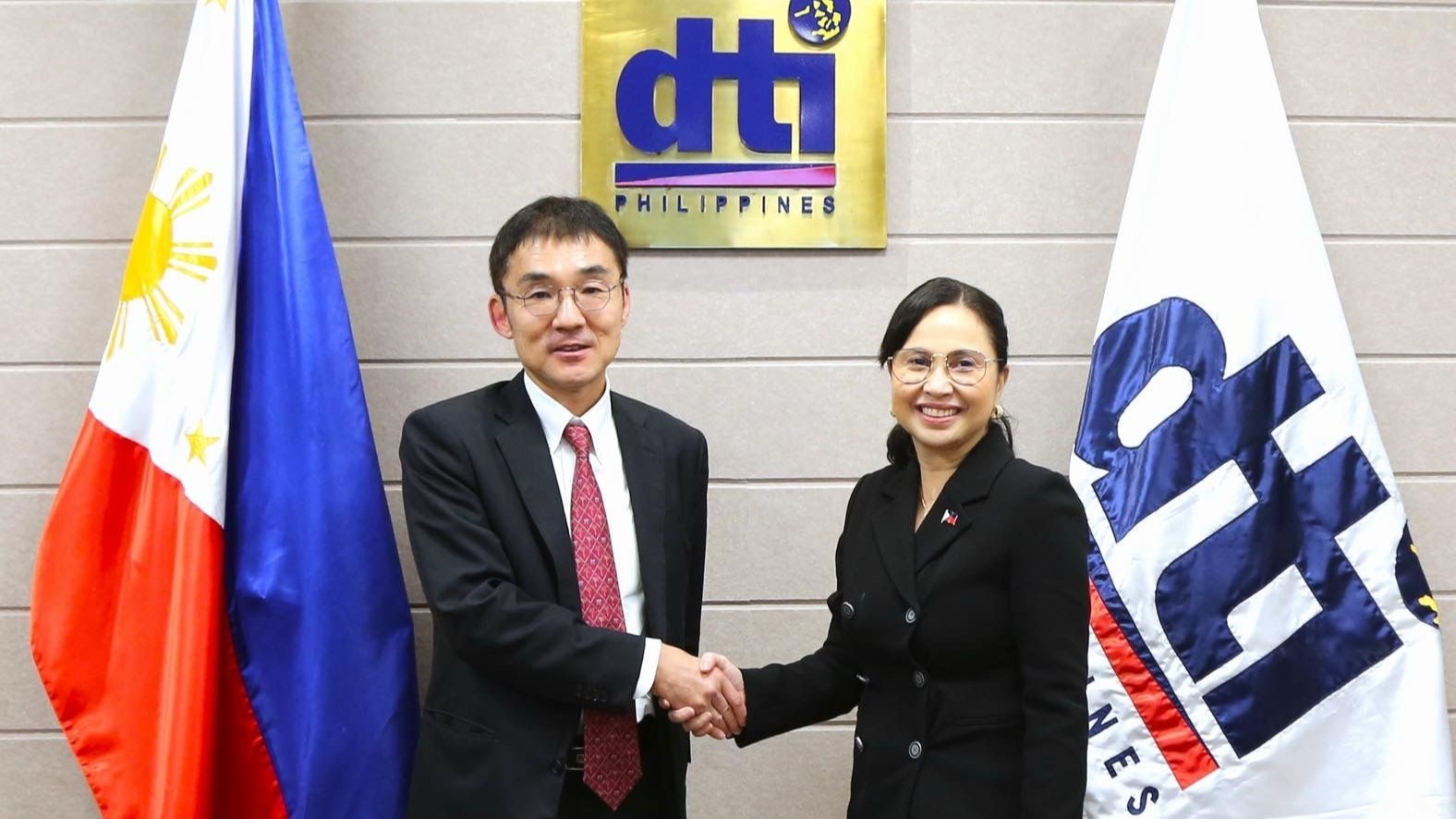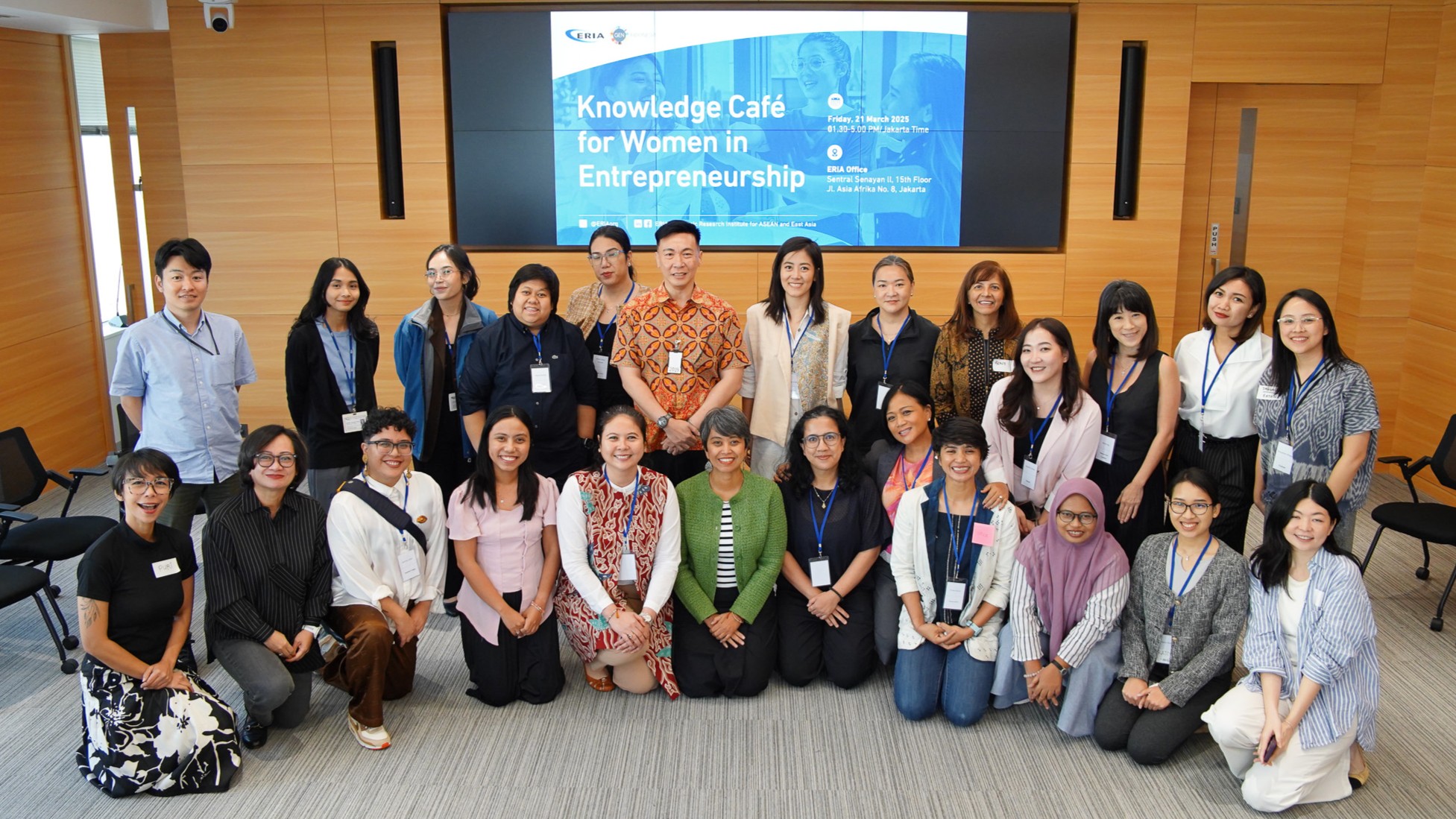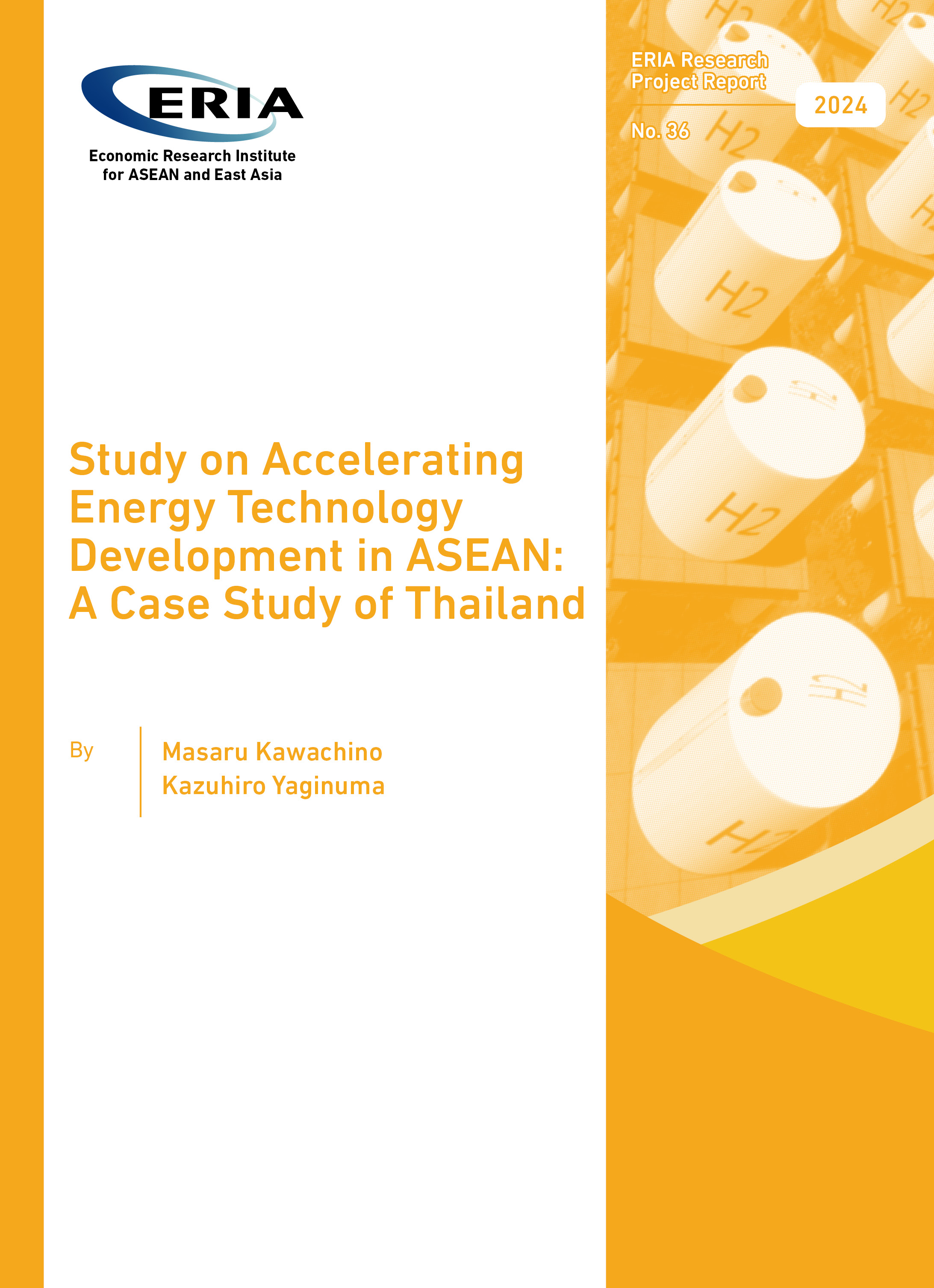ERIA Releases Updated Database to Help Improve Trade Environment in ASEAN
Date:
10 September 2019Category:
Press ReleasesTopics:
ASEAN, Non-Tariff MeasuresShare Article:
Print Article:
Bangkok, 10 September 2019: The official handover ceremony of the Non-Tariff Measures (NTMs) Database from the Economic Research Institute for ASEAN and East Asia (ERIA) to ASEAN Member States (AMS) took place this morning on the sidelines of the 51st ASEAN Economic Ministers’ Meeting and Related Meetings, attended by H.E. Dato Lim Jock Hoi, Secretary-General of ASEAN, Ministers from the East Asia Summit, and ERIA officials.
NTMs are policy measures, other than ordinary customs tariffs, that can potentially have an economic effect on international trade in goods, changing quantities traded, or prices, or both. Examples of NTMs include sanitary and phytosanitary regulations (measures that are applied to protect human or animal life) and technical barriers (eg: labeling requirements).
Over the past 15 years, tariffs have declined worldwide, however the number of NTMs has increased dramatically – 15% in ASEAN over the past three years. Since NTMs have the potential to restrict trade, the increase has raised concerns about returning to protectionism, which could hamper ASEAN’s integration efforts. Thus the focus has shifted to policy measures that can indirectly affect trade. Because NTMs constitute a grey area where trade policy objectives meet public policy goals, effective NTM management must consider not only their trade-distorting effects but also their potential benefits.
ERIA, in collaboration with the United Nations Conference on Trade and Development (UNCTAD), collected and classified NTMs in the ten ASEAN countries plus the six East Asia Countries. Both organisations collected data on all regulations from official documents including international conventions adopted by countries. ERIA has shared the raw or more detailed ASEAN data of the NTMs database to AMS to assist in developing their respective national trade repositories.
The Database aims to (i) collect, validate, and store NTM data from official sources; (ii) improve the general understanding of these measures and their impact on world trade; and (iii) provide insights on NTMs in 16 countries. Detailed information from the Database can help to clarify the extent of NTMs application and to develop appropriate approaches to manage them and make them business friendly.
During the ceremony, Prof Hidetoshi Nishimura, President of ERIA, handed over the database to Dato Lim Jock Hoi, Secretary-General of ASEAN, while EAS Ministers witnessed the event.
For ASEAN, the removal of non-tariff barriers is amongst the major components of regional efforts to enhance intra-regional trade. In principle, the ASEAN Trade in Goods Agreement has explicitly stated obligations regarding NTMs. In practice, however, the integration agenda has focused primarily on tariffs, which have been reduced to 0.2% on average within ASEAN.
Prof Nishimura stated ‘As room to liberalise tariffs further is limited, addressing NTMs is fundamental to fully realise the ASEAN Economic Community.’
The issue is complicated though, as many NTMs are necessary and justifiable. As a country becomes more integrated into the global economy, it needs more and appropriate trade regulations and regulatory reform. Having just a few NTMs could reflect gaps in consumer and environmental protection and potential under-regulation. On the other hand, the rise of NTMs in the context of tariff reduction suggests that NTMs are sometimes used as an additional tool to protect domestic producers.
This database is only the first step towards improving transparency and competitiveness for AMS. The successful collaboration between ERIA and UNCTAD, with the unwavering support from AMS, will continue through various follow-up activities. Upon official request from the ASEAN Trade Facilitation Joint Consultative Committee (ATFJCC), efforts are being made to enhance the capacity of governments to sustain and update the database as well as to manage NTMs in ASEAN through in-country training programs. ERIA hopes these activities can contribute to ASEAN’s efforts to enhance national competitiveness and advance the integration agenda, which, ultimately, could foster economic growth.
The NTM database is accessible here /database-and-programmes/topic/asean-east-asia-ntm-database
For more information, please contact:
Lydia Ruddy
Director of Communications, ERIA
Email: [email protected]
Phone (Indonesia): +628118114600
For more information on ERIA and its research projects visit: www.eria.org
To connect with ERIA via Facebook visit: https://www.facebook.com/ERIA.org
To connect with ERIA via Twitter follow: @ERIAorg
To follow opinion articles from ERIA researchers via Medium follow: @ERIAorg
